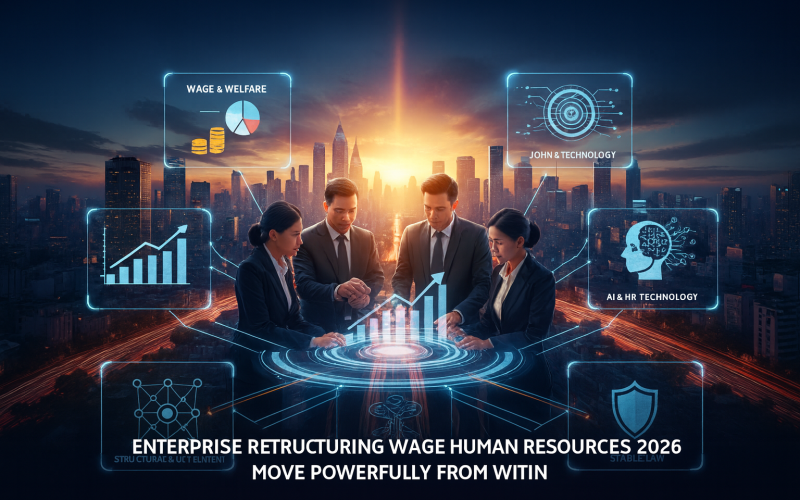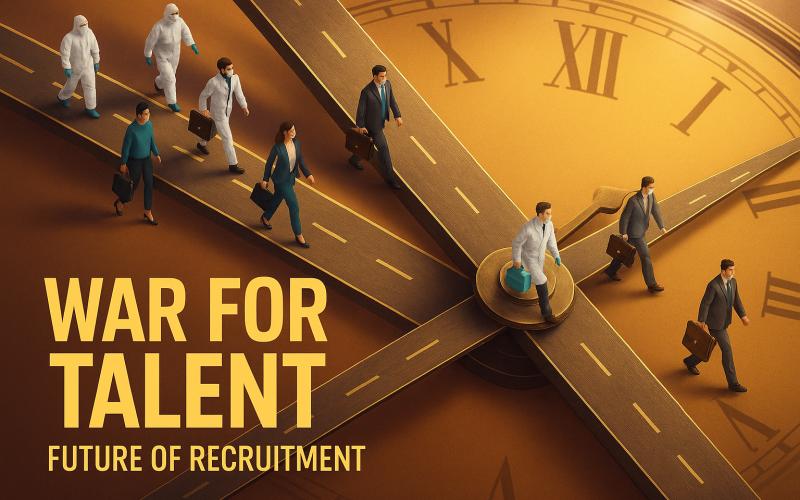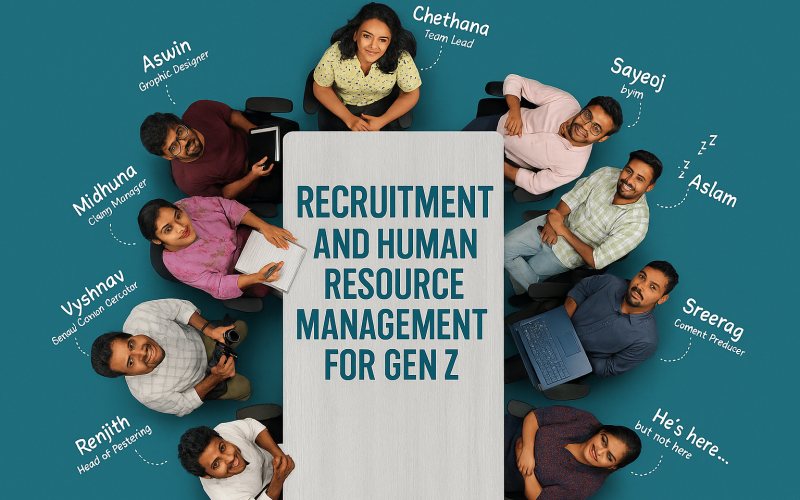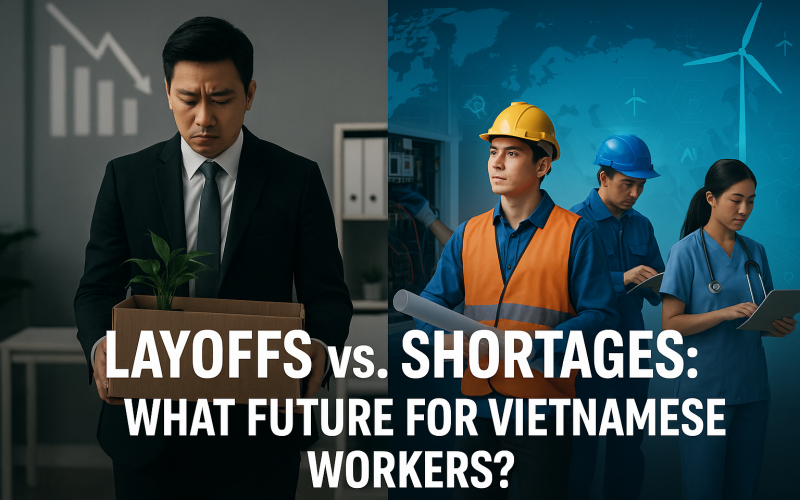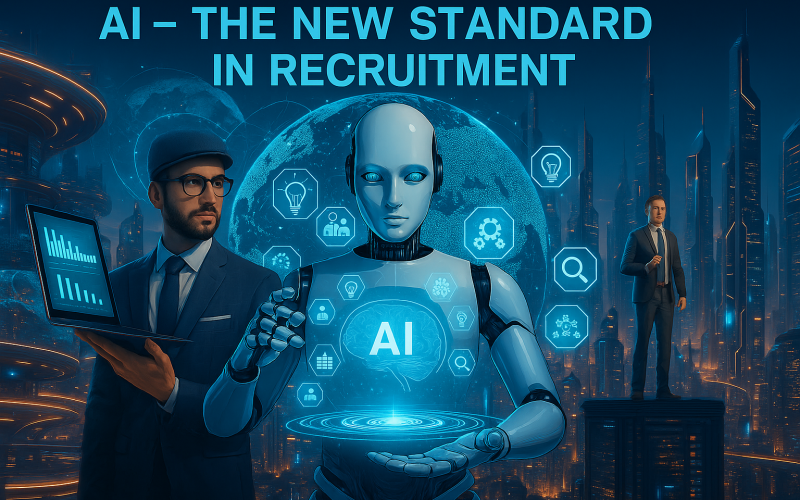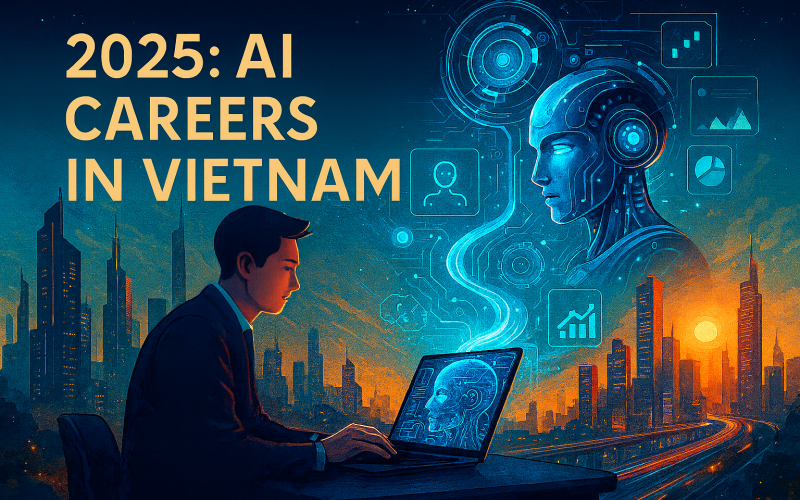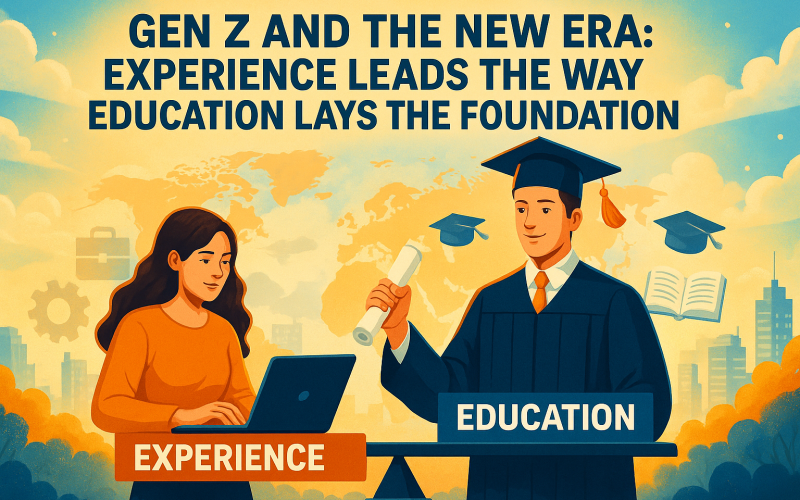AI Won’t Replace You, But Will Change How You Work: What Skills Can Future-Proof Your Career?
The artificial intelligence (AI) revolution is creating unprecedented transformations in the history of work. From manufacturing, finance, and logistics to education and services, almost no industry is beyond its influence. But instead of the narrative that “AI will steal jobs,” a clearer reality is emerging: AI will not replace humans entirely, but it will change the way we work. And the difference between those who are “replaced” and those who “leverage AI to grow” lies in skills.
1. A Major Shift: AI and the Global Job Market
The Future of Jobs Report 2025 by the World Economic Forum (WEF) forecasts that 39% of workers’ existing skills will be disrupted or become obsolete within the next 5 years. This is a striking figure, as it highlights that even familiar skills today may no longer be relevant tomorrow.
However, the picture is not entirely grim. WEF estimates 170 million new jobs will be created during the same period, compared to 92 million jobs lost due to automation and industry restructuring. This means opportunities are not disappearing but rather being redistributed to those ready to learn and adapt.
A PwC (2025) report adds another perspective: jobs most affected by AI experience skills disruption 66% faster than those less exposed. Interestingly, individuals who possess AI-related skills are receiving a significant wage premium compared to others.
In the U.S., research by the Atlanta Fed and Lightcast (2025) recorded 628,000 job postings in 2024 requiring at least one AI-related skill, accounting for 1.7% of total postings — more than triple the number in 2010. This trend shows that AI is not just a fad but a new standard in the labor market.
2. Perspective from Vietnam: Opportunities and Challenges
Vietnam is one of the most active countries in the region in embracing digital transformation. However, the skills gap remains a major challenge. A survey by Navigos Group (2024) shows that 72% of companies struggle to find candidates with soft skills such as communication, adaptability, and leadership, even though technical expertise is abundant.
On the other hand, TopCV (2024) found that 65% of students and young professionals are willing to participate in soft skills or digital skills training if supported. This reflects the ambition and growth mindset of Gen Z – a crucial factor for Vietnam to integrate more deeply into the global knowledge economy.
3. What Skills Help You “Future-Proof” Your Career?
If AI is reshaping the nature of work, what skills will help humans maintain their competitive edge? HR experts and international reports consistently highlight several key groups:
3.1. Digital Skills and AI Literacy
In a world where AI is everywhere, knowing how to use AI tools, analyze data, and apply technology to boost productivity is a “must-have.” Those who collaborate with AI will outperform those who see AI as a rival.
Example: A marketing employee not only runs Facebook ads traditionally but also leverages AI to analyze customer behavior and optimize messaging.
3.2. Adaptability and Lifelong Learning
AI shortens the life cycle of technical expertise. The concept of “learning once for life” no longer exists. According to McKinsey (2025), nearly half of global employees want their companies to provide formal training so they can use AI more effectively.
Candidates who continuously upskill and reskill will always maintain their position in the labor market.
3.3. Problem-Solving and Critical Thinking
AI can make suggestions, but humans make the final decisions. In complex environments, the ability to question, evaluate information, and provide sound solutions is a capability that machines struggle to replace.
3.4. Communication and Cross-Cultural Collaboration
Working in global teams requires listening, persuasion, and connecting across different cultures. This is a special advantage as Vietnam increasingly participates in global value chains.
3.5. Leadership and Emotional Intelligence
In the AI era, leadership is no longer reserved for managers. Leadership at every level — from a young sales employee leading a small project team to an engineer mentoring a new colleague — is essential. Emotional intelligence, the ability to inspire, and change management are the keys to guiding people through uncertainty.
4. What Should Candidates Do to Keep Up?
Some practical suggestions:
- Show soft skills with real examples: Don’t just write “good communication” in your CV. Share a situation where you persuaded a difficult client or resolved a team conflict.
- Learn AI tools proactively: Whatever your field, experiment with AI to improve daily tasks.
- Join online courses: Coursera, Udemy, and government or corporate programs offer many free or low-cost opportunities.
- Build cross-cultural skills: Learn new languages, join international projects, or participate in multicultural community activities to broaden your experience.
5. What Do Businesses Need?
It’s not just individuals; companies must also adapt. Investing in reskilling and upskilling employees is a fundamental solution. Companies that build a culture of continuous learning and encourage open feedback will gain an edge in retaining talent.
PwC calls this the “AI jobs barometer”: organizations that leverage AI alongside human talent achieve superior productivity, and their employees also enjoy higher-than-average wages.
Humans Remain at the Center
AI will not replace humans entirely, but it will transform the way we work. Those who resist adaptation risk being left behind. Conversely, those who combine technical expertise with soft skills while mastering AI tools will be the ones to future-proof their careers.
In an era where technology can be copied quickly, it is humans — with communication, emotional intelligence, leadership, and creativity — who remain the most sustainable competitive advantage.






